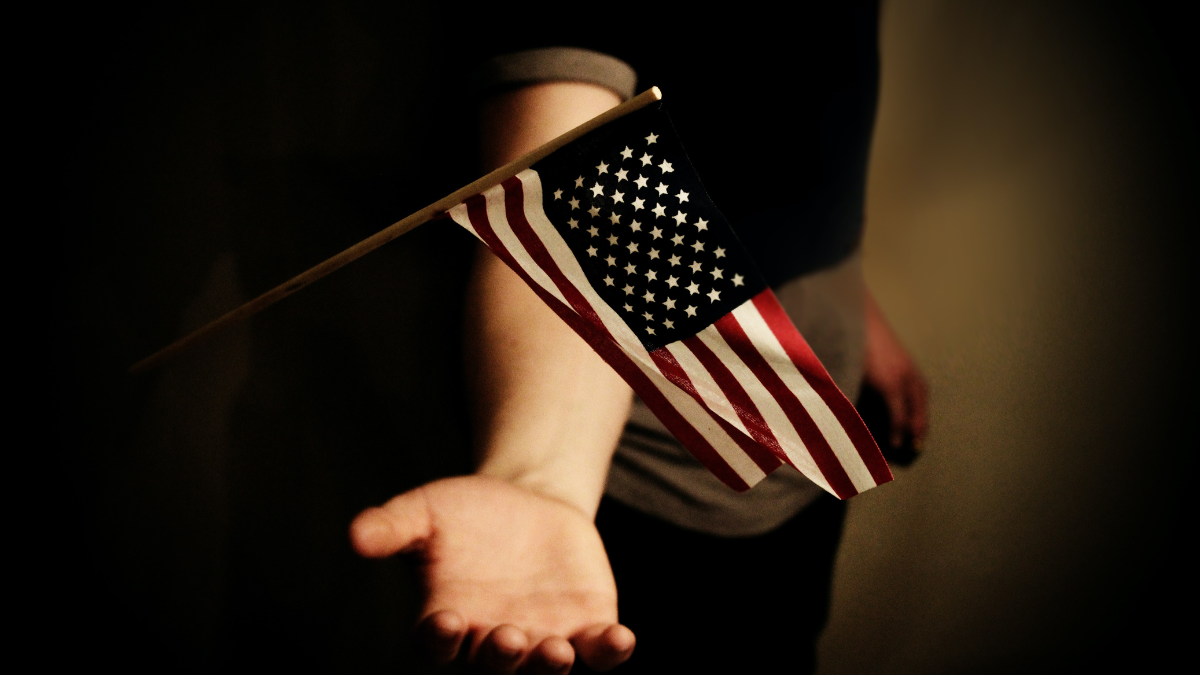

A Helpful Bit of Clarity About Christian Nationalism
Considering differing postures of what faithful citizenship looks like in America.
10/26/23
John Stonestreet Timothy D Padgett

In a recent article published by the Washington Institute, professor and lawyer Eric Treene offered a robust alternative way of understanding Christian Nationalism and its significance within American culture. Depending on who’s doing the talking, Christian Nationalism is either the greatest danger to America or our only hope in resisting the onslaught of the progressive movement. But there is a better way. As Treene wrote, the current debate over Christian Nationalism is the most recent chapter of something that is an endemic part of the American story:
[C]an Christians honestly look around and conclude that there is more nationalism melded with their faith than in the past? In 1941 President Franklin Roosevelt distributed a pocket New Testament to soldiers throughout the Armed Services, with the inscription: “As Commander-in-Chief I take pleasure in commending the reading of the Bible to all who serve in the armed forces of the United States.”
At the same time, according to Treene, there are reasons to be concerned about Christian Nationalism.
The alarmism about growing Christian Nationalism is vastly overblown among some, and deliberately manipulated for political reasons among others. But there is a “there” there.
In the inaugural offering of Breakpoint Forums, the Colson Center hosted two of American Christianity’s keenest voices about faith and the public square. Rusty Reno, chief editor of First Things, and Hunter Baker, newly appointed provost of North Greenville University, addressed the issue of Christian Nationalism.
Not only do Reno and Baker hail from different Church traditions, but they took somewhat differing postures in the forum on what faithful citizenship looks like in our cultural moment. Dr. Reno’s seriousness about where a secular globalist perspective has left us leads him to embrace a “soft” Christian Nationalism, though he objects to the positions of some of its most outspoken advocates. As he put it,
I would vastly prefer a Christian America to a secular America. … I think it’s as simple as that. You have to ask yourself, what would you prefer, a Christian America or a secular America? I’d prefer a Christian America, and in that sense, Christian nationalism.
Dr. Baker, on the other hand, argued against using the title Christian Nationalism while affirming the largely Christian influence on our nation throughout its history. He insisted that the nation and the Church are better off without any kind of formal link, while the nation is helped by the intentional influence of the church.
It’s like George Washington and the Bible. These are the bulwarks of the United States in that period. But … for most of our history, it’s not the case that the United States government is sort of the official partner of the Christian faith, nor is it seeking to officially establish the Christian faith or Christian institutions.
Their differences were illuminating, especially given their shared priority of Christian faith, grounded in Christian truth as revealed in Holy Scripture. Each warned against the danger posed by our increasingly intolerant, secular, and progressive gatekeepers who sit atop the cultural, academic, and political power structures of our society. And both Reno and Baker affirmed the basic responsibility believers have to bring their convictions to the ballot box.
The conversation was helpful and enlightening. While combatants on the extreme ends of the debate insist that it’s their way or the highway, Christians must seek an increasing Christian influence without falling for the dangers C.S. Lewis warned us against in God in the Dock when he said, “By the mere act of calling itself the Christian Party it implicitly accuses all Christians who do not join it of apostasy and betrayal.” We can do better than that. You can watch the recording of the Breakpoint Forum on Christian Nationalism on YouTube.
Working to see a nation become more Christian doesn’t make one a Christian Nationalist in the breathlessly alarmed sense we hear about so often. Our goal is faithfulness. We can long for and we can work for Christian renewal in our time without, as Chuck Colson often warned against, looking for our salvation to arrive on Air Force One.
This Breakpoint was co-authored by Dr. Timothy Padgett. If you’re a fan of Breakpoint, leave a review on your favorite podcast app. For more resources to live like a Christian in this cultural moment, go to breakpoint.org.
Have a Follow-up Question?
Up
Next

Related Content

© Copyright 2020, All Rights Reserved.













